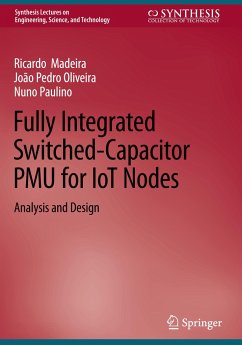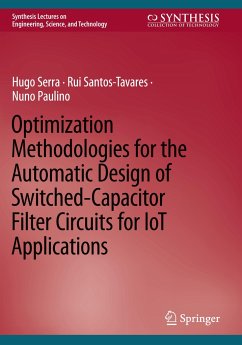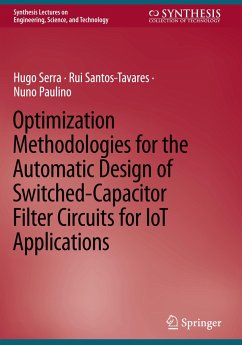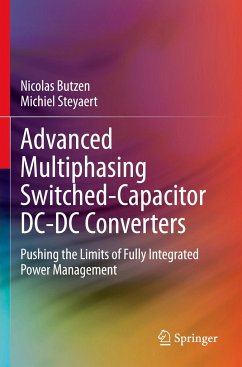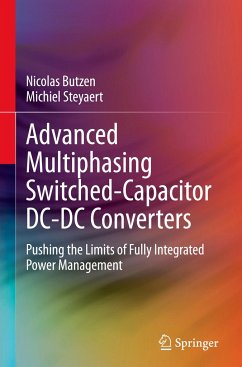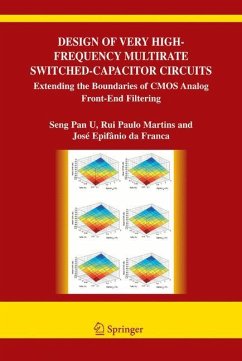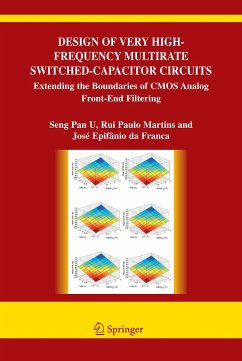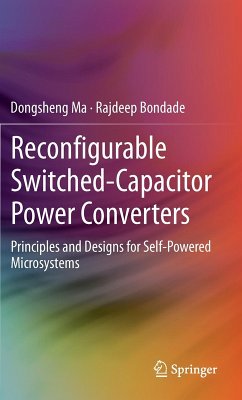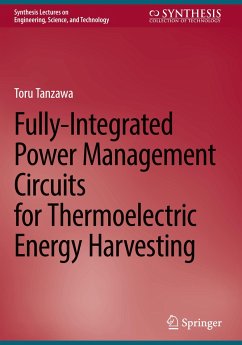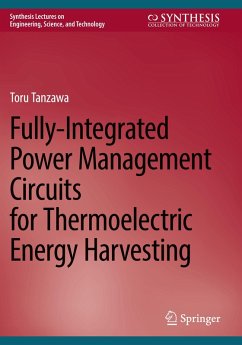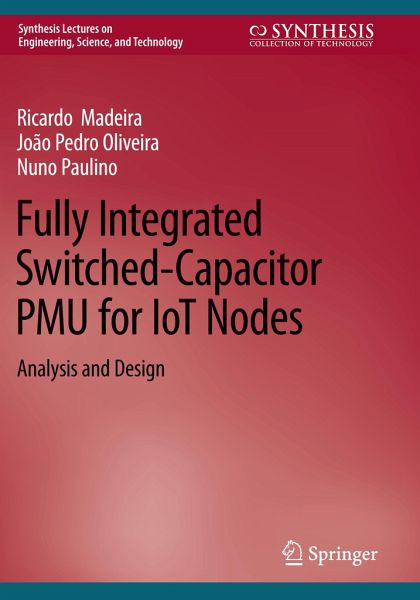
Fully Integrated Switched-Capacitor PMU for IoT Nodes
Analysis and Design
Versandkostenfrei!
Versandfertig in 6-10 Tagen
46,99 €
inkl. MwSt.
Weitere Ausgaben:

PAYBACK Punkte
23 °P sammeln!
This book provides a step-by-step methodology and system design that can be used to design a fully integrated PMU using SC DC-DC converters, for any CMOS technology. The authors discuss trade-offs between power density and efficiency of the methodology for the 130 nm CMOS technology, and how to implement it on other CMOS technologies. The book describes the state-of-the-art of fully or near-fully integrated SC DC-DC converters with multiple conversion ratios and the techniques used to enhance the overall performance of these converters. Coverage includes the trade-off between the number of con...
This book provides a step-by-step methodology and system design that can be used to design a fully integrated PMU using SC DC-DC converters, for any CMOS technology. The authors discuss trade-offs between power density and efficiency of the methodology for the 130 nm CMOS technology, and how to implement it on other CMOS technologies. The book describes the state-of-the-art of fully or near-fully integrated SC DC-DC converters with multiple conversion ratios and the techniques used to enhance the overall performance of these converters. Coverage includes the trade-off between the number of conversion ratios and overall extracted efficiency from a supercapacitor, as well as the sizing of the converter cells according to the desired output power and maximum clock frequency. The authors also describe in detail the design of the fundamental blocks for the converter operation, which includes a secondary control loop using capacitance modulation by sensing the clock frequency.





